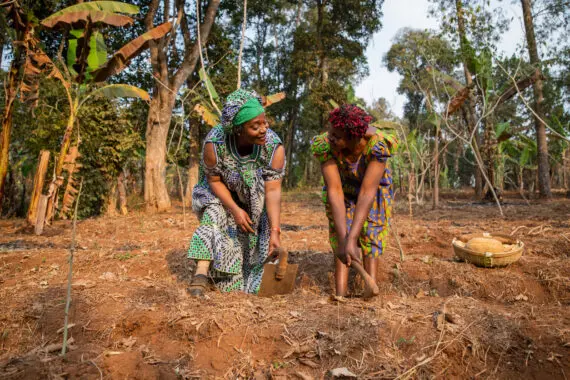By Angelique Walker-Smith
In 2019, after centuries of structural change, protests, and policy reforms most often led by Africans and people of African descent, why do these groups still experience such disproportionately high percentages of hunger and poverty today? And why is there still such a wide wealth and income gap between these groups and individuals of European and Asian descent?
An essential part of the answer lies in the history of the Quad-Centennial of the transatlantic voyage of African peoples from the country of Angola in 1619 to Jamestown, Virginia. The practice, and later policy, of enslaving African peoples before, during, and after this time are the foundation on which inequitable policies were established. Additionally, these policies have informed a practice and culture of colonization and Afrophobia around the world.
Although scholars, like Dr. Michael Guasco, from Davidson College, point out that Africans had previously been enslaved in English Atlantic colonies in other parts of the globe, Dr. Tim Hashaw, author of “Birth of Black America,” notes that “absolutely vital to the formation of English-speaking America was in 1619 in Jamestown, Virginia when some sixty Africans were stolen from a Spanish slave ship (by the English) and were brought to the young struggling colony of Jamestown…”
This is where the origins of the process for the codification of legalized slavery of Africans and African descended peoples in the United States began.
Bread for the World recognizes that the 2019 Quad-Centennial is a global historic moment to acknowledge how the practice of slavery in the United States led to the development of public policies sanctioning the enslavement of Africans and African descended people.
Bread for the World also recognizes that this enslavement was followed by deliberate public policies and practices that have systematically disempowered and disenfranchised people of African descent for 400 years in the United States and around the world.
Bread for the World therefore endorses the International Decade in Solidarity with People of African Descent as it seeks to address the residual impacts of slavery domestically and globally.
As a collective Christian voice, Bread for the World further recognizes and acknowledges the role many churches have played in supporting and perpetuating these horrific practices and policies. Many of these same churches and denominations have since published official documents of confession and repentance regarding the same.
In light of this historic moment, Bread for the World is honored to produce and dedicate the new 2019 Quad-Centennial monthly devotional, “Lament and Hope,” which will be available in early February on its website and in print.
The devotional celebrates the hope, faith, and resistance of African and African descended people, while also lamenting the evil and horror of the history of enslavement, racism, and inequitable policies, many of which are still present today.
In addition, this Christian devotional acknowledges and seeks to inspire readers to address the resulting consequences of hunger and poverty.
Angelique Walker-Smith is senior associate for Pan African and Orthodox Church Engagement at Bread for the World.



